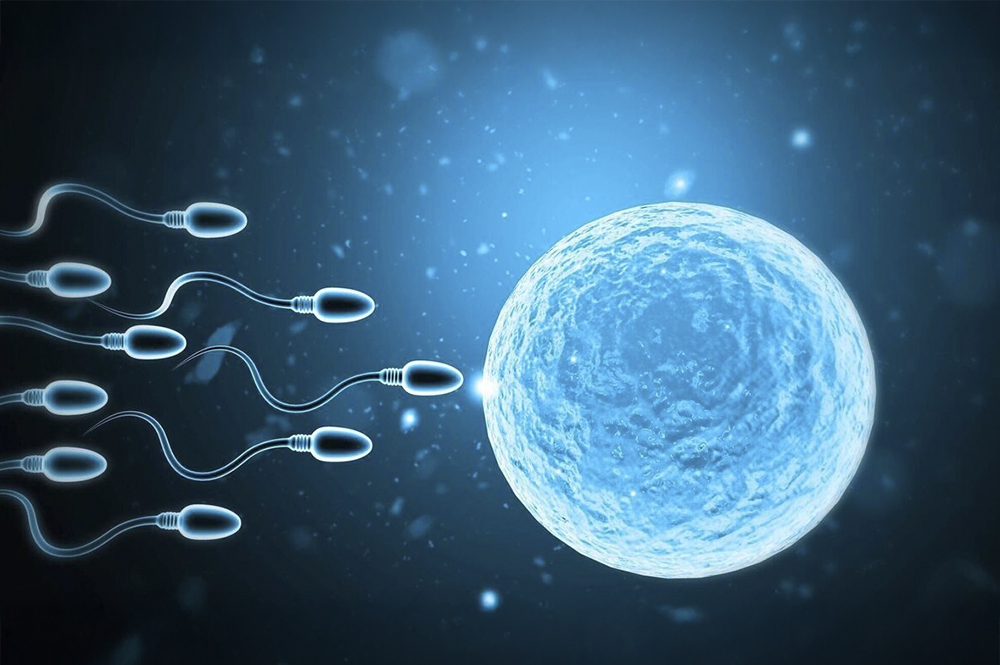Infertility is often thought of as a women’s issue, but research shows that male factors contribute to about 40–50% of infertility cases. Low sperm count, poor motility, and unhealthy lifestyle choices can significantly affect a man’s fertility. The good news? In many cases, improving everyday habits can boost sperm health and increase the chances of natural conception.
If you’re wondering how to enhance male fertility without medical intervention, here are 5 easy and natural steps backed by science.
Step 1: Improve Your Diet
What you eat plays a crucial role in sperm health. Nutrients like zinc, selenium, vitamin C, and antioxidants help improve sperm count, quality, and motility.
Fertility-friendly foods include:
- Leafy greens & vegetables – Spinach, kale, and broccoli are rich in folate and vitamins.
- Fruits – Citrus fruits, bananas, and berries boost antioxidant levels.
- Nuts & seeds – Walnuts, almonds, pumpkin seeds, and sunflower seeds improve sperm motility.
- Protein sources – Lean meat, fish, eggs, and legumes provide essential amino acids.
- Whole grains – Brown rice, oats, and quinoa for sustained energy and hormone balance.
👉 Tip: Avoid junk food, processed sugars, and excessive red meat, which are linked to poor sperm quality.
Step 2: Exercise Regularly (But Don’t Overdo It)
Physical activity helps regulate hormones, improve blood circulation, and maintain a healthy weight—all of which positively impact fertility.
- Moderate workouts like brisk walking, cycling, or swimming are excellent.
- Strength training boosts testosterone levels naturally.
- Yoga & meditation reduce stress, which can otherwise lower sperm count.
👉 Avoid excessive exercise or heavy steroid use, as these can reduce testosterone and sperm production.
Step 3: Maintain a Healthy Weight
Obesity is strongly linked to reduced sperm quality and erectile dysfunction. Excess body fat can cause hormonal imbalances, leading to lower testosterone levels and poor sperm production.
Simple tips to manage weight:
- Follow a balanced diet with more whole foods and fewer processed meals.
- Stay active daily, even with light activities like walking or climbing stairs.
- Get enough sleep, as poor rest contributes to weight gain and hormonal issues.
Losing even 5–10% of body weight can make a noticeable difference in fertility.
Step 4: Avoid Harmful Habits
Lifestyle habits can make or break male fertility. If you’re planning for pregnancy, here’s what to avoid:
- Quit smoking – Cigarettes reduce sperm count, motility, and DNA quality.
- Limit alcohol – Excessive drinking lowers testosterone and reduces sperm quality.
- Say no to recreational drugs – Marijuana, cocaine, and anabolic steroids directly affect sperm production.
- Limit caffeine – Stick to less than 2 cups of coffee per day.
👉 Additionally, avoid prolonged exposure to heat (saunas, hot tubs, or laptops on the lap) since high temperatures reduce sperm production.
Step 5: Manage Stress and Sleep Well
Stress triggers cortisol production, which negatively impacts testosterone and sperm health. Lack of proper sleep also disrupts hormone regulation, lowering fertility.
How to manage stress naturally:
- Practice deep breathing, yoga, or meditation.
- Engage in hobbies and outdoor activities.
- Maintain a regular sleep schedule with 7–8 hours of quality sleep.
- Spend time with your partner to reduce emotional pressure during the fertility journey.
A relaxed mind and well-rested body create the ideal conditions for fertility.
Bonus Tip: Consider Natural Supplements
Certain supplements may support male fertility when taken under medical guidance:
- Zinc & selenium – Essential for sperm development.
- Vitamin C & E – Protect sperm from oxidative damage.
- Coenzyme Q10 – Improves motility.
- Omega-3 fatty acids – Found in fish oil, help overall sperm quality.
Always consult a doctor before starting supplements to ensure safety and correct dosage.
Conclusion
Male fertility is highly influenced by daily habits. By eating a nutrient-rich diet, staying active, maintaining healthy weight, avoiding harmful habits, and managing stress, men can naturally boost their reproductive health.
Remember, fertility improvement takes time—sperm production cycles last around 70–90 days. So, consistent lifestyle changes for at least three months can significantly improve chances of conception.








